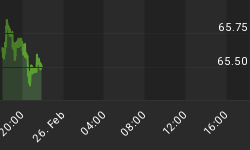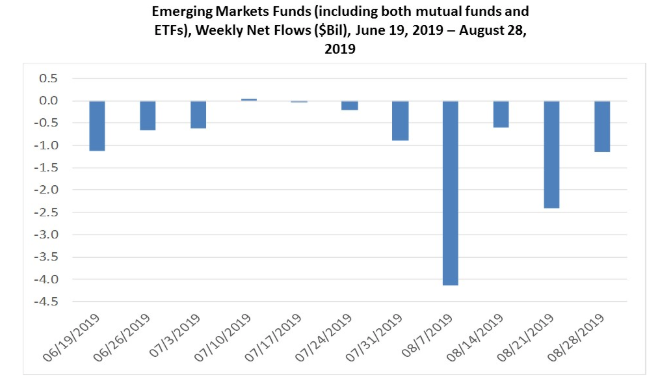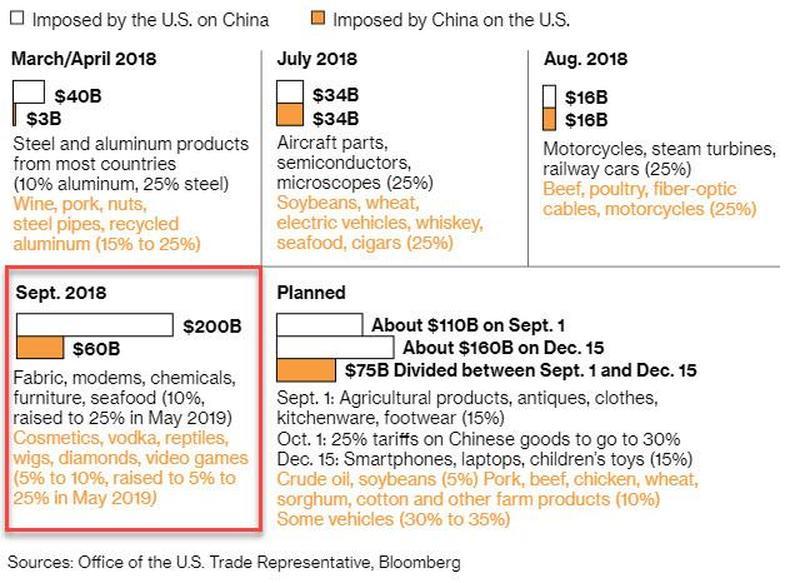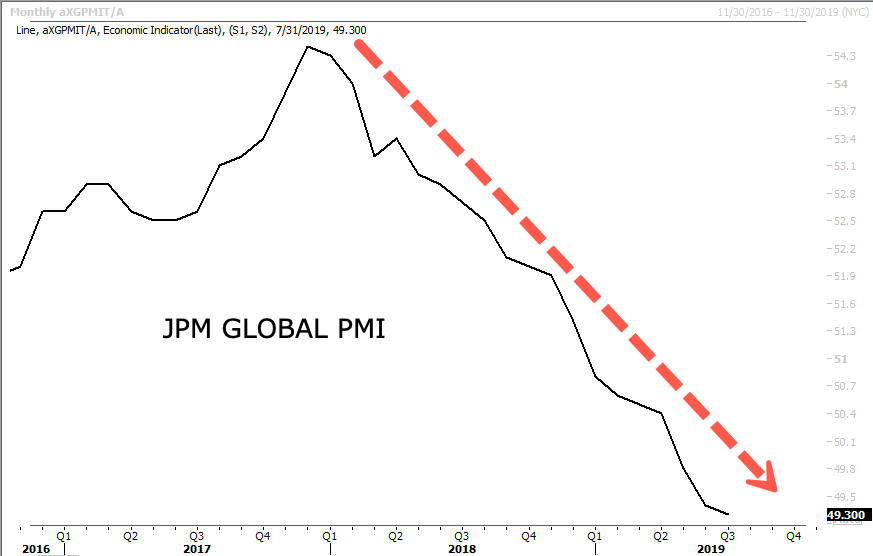Lipper's Emerging Markets Funds have experienced their worst-ever net outflows during 3Q19. The mass exodus is due to a combination of factors, likely caused by an escalation of the trade war between the U.S. and China this summer, a global synchronized slowdown that is wreaking havoc on emerging market countries, and a strong dollar that has sent emerging market currencies into a tailspin.
"Lipper's Emerging Markets Funds peer group (including both mutual funds and ETFs) experienced net outflows of $1.1 billion for the fund-flows trading week ended Wednesday, Aug. 28. This negative net flow marked the tenth net outflow in the last eleven weeks for the peer group during which over $11.8 billion has left the group's coffers. As part of this slump, the emerging markets funds group suffered the worst weekly net outflow in its history (Lipper began tracking fund flows data for this group in 1993) as $4.1 billion left during the fund-flows week ended Aug. 7. The group has recorded a net negative flow of $10.2 billion for the quarter to date putting it on pace to surpass the second quarter of 2013 (-$13.7 billion) for its worst quarterly fund flows result ever," as per a new report via Refinitiv. Most of the -$8.6 billion net outflow during 3Q19 for emerging market funds have been seen in ETFs as opposed to mutual funds (-$1.6 billion): iShares MSCI Emerging Markets ETF (EEM, -$5.6 billion) and iShares Core MSCI Emerging Markets ETF (IEMG, -$2.6 billion) were the two largest individual negative net flows for ETFs. GMO Emerging Domestic Opportunities Fund(-$292 million) was the largest net outflow amongst mutual funds.
(Click to enlarge)
Emerging markets are at the mercy of the U.S.-China trade war after investors spent an exhausting summer pivoting between disappointment and optimism for a possible trade truce.
Last week, President Trump told reporters that he held "high-level talks" with China about the trade war, adding "this is the first time I've seen them where they really want to make a deal."
China countered by saying there were never any talks. And CNN reported that: "Instead, two officials said Trump was eager to project optimism that might boost markets and conflated comments from China's vice premier with direct communication from the Chinese."
Related: Will The Stock Market Really Crash If Trump Isn’t Re-Elected?
With no trade deal in sight, at midnight on Saturday, the Trump administration slapped tariffs on $112 billion in Chinese imports. One minute later, at 12:01 am EDT, China retaliated with higher tariffs being rolled out in stages on a total of about $75 billion of U.S. goods.
(Click to enlarge)
The whipsaw in sentiment in the last week of August into early Septemeber will weigh on emerging markets in the weeks ahead. Investors will be watching the Federal Reserve for more hints of rate cuts ahead of the next meeting on Sept. 18.
"For EM prospects to improve, we would need to see the Fed turning more proactively dovish and/or trade tensions abating," Morgan Stanley strategist James Lord wrote in a note. "Neither of these outcomes seem likely for now."
The emerging-market trade has been stuck in a rut for the last 82 weeks, with severe headwinds from a strengthening dollar and a trade war that has amplified the global downturn in growth.
(Click to enlarge)
September could be another painful month, with more outflows expected in emerging market ETFs and mutual funds.
By Zerohedge.com
More Top Reads From Safehaven.com:




















